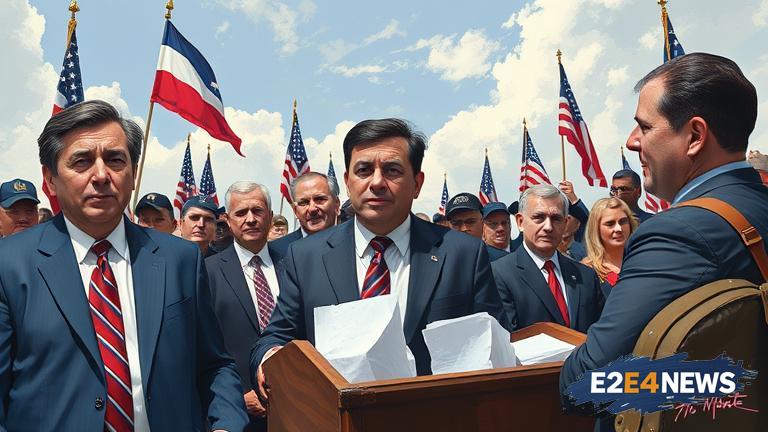The Conservative Party of Canada, under the leadership of Pierre Poilievre, has been embroiled in a controversy surrounding its connections to the Freedom Convoy movement. The movement, which began as a protest against COVID-19 vaccine mandates, has evolved into a broader anti-government movement. Poilievre, who has been a vocal supporter of the movement, has faced criticism for his stance, with many accusing him of pandering to extremist elements. The Freedom Convoy, which blockaded the streets of Ottawa in February 2022, was marked by incidents of violence, harassment, and hate speech. Despite this, Poilievre has continued to express support for the movement, stating that he believes in the right to peaceful protest. However, many have questioned the true nature of the movement, pointing to its ties to far-right and white nationalist groups. The Conservative Party has also faced criticism for its handling of the situation, with some MPs attending rallies and events organized by the Freedom Convoy. The party’s stance on the issue has sparked division within its own ranks, with some members expressing discomfort with the movement’s extremist elements. The controversy has also had implications for the party’s relationships with other political parties, with the Liberal Party and NDP accusing the Conservatives of tolerating hate speech and extremism. The issue has also sparked a wider debate about the role of protest and free speech in Canadian society. While some argue that the Freedom Convoy movement represents a legitimate expression of dissent, others see it as a threat to public safety and social cohesion. The Conservative Party’s stance on the issue has also been influenced by its base, with many supporters seeing the movement as a symbol of resistance against government overreach. However, the party’s leadership has been accused of failing to adequately condemn the movement’s extremist elements, instead choosing to focus on the issue of vaccine mandates. The controversy has also raised questions about the party’s commitment to combating hate speech and extremism, with some critics arguing that it has been too slow to act. As the debate continues, it remains to be seen how the Conservative Party will navigate the complex and contentious issue of the Freedom Convoy movement. The party’s stance on the issue will likely have significant implications for its relationships with other parties, as well as its reputation among Canadian voters. Ultimately, the controversy surrounding the Freedom Convoy movement serves as a reminder of the challenges and complexities of balancing free speech and public safety in a democratic society.
